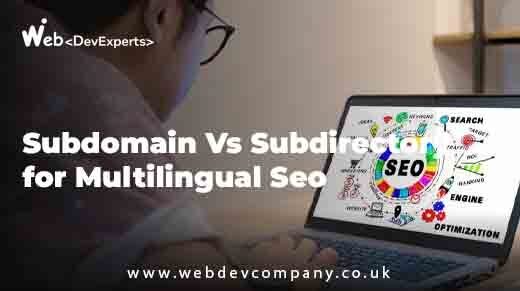In today’s digital age, having a strong online presence is crucial for businesses and individuals alike. A well-optimized website can be the difference between a thriving online presence and being lost in the vast sea of the internet. One of the first steps to ensure your website is SEO-friendly is to choose the right website builder. But with so many options available, how do you know which one is the best for SEO? This guide will help you navigate the landscape and find the best website builder for SEO.
Why SEO Matters
Before diving into website builders, let’s briefly discuss why SEO (Search Engine Optimization) is so important. SEO is the process of improving your website’s visibility on search engines like Google. When your site ranks higher, it’s more likely to attract organic traffic, which is crucial for gaining new customers and growing your online presence.
Key Features to Look for in an SEO-Friendly Website Builder
When selecting a website builder, consider these essential SEO features:
- Customizable Meta Tags: Being able to edit meta titles and descriptions helps you optimize your content for search engines.
- Mobile-Friendliness: With mobile traffic on the rise, a responsive design is crucial for SEO.
- Fast Loading Speeds: Search engines prefer websites that load quickly, so ensure your builder supports this.
- Clean Code: A website builder that generates clean, HTML-compliant code will help search engines crawl and index your site more efficiently.
- Built-In SEO Tools: Look for builders with integrated SEO tools, such as keyword suggestions and on-page optimization features.
Top Website Builders for SEO
1. WordPress
WordPress is often considered the best website builder for SEO. It offers unparalleled flexibility and control over your site’s SEO settings. Here’s why:
- SEO Plugins: With plugins like Yoast SEO and All in One SEO, you can easily manage your site’s SEO.
- Customizable Permalinks: You can create clean, keyword-rich URLs that improve search engine rankings.
- Content Management: WordPress’s robust content management system allows for easy updates and optimizations.
Anecdote: A friend of mine started a blog using WordPress and saw a dramatic increase in traffic after optimizing with Yoast SEO. It’s a testament to how powerful this platform can be.
2. Wix
Wix has made significant strides in SEO in recent years. It offers several features that can help boost your search engine rankings:
- Wix SEO Wiz: This tool provides personalized SEO plans and tips to improve your site’s performance.
- Mobile Optimization: Wix automatically adjusts your site to look great on mobile devices.
- Page Speed: Wix’s infrastructure is designed to ensure your site loads quickly.
Anecdote: I once helped a local business set up their site on Wix, and they were thrilled with the ease of use and the SEO improvements they saw within months.
3. Squarespace
Squarespace is known for its elegant design templates and SEO-friendly features:
- Automatic SSL: Squarespace provides a free SSL certificate, which is crucial for site security and SEO.
- Built-In SEO: The platform includes essential SEO features like automatic sitemap generation and SEO-friendly URLs.
- Responsive Design: All Squarespace templates are mobile-friendly, ensuring a seamless user experience.
Anecdote: I had a client who used Squarespace for their portfolio site, and they appreciated the straightforward SEO tools that helped their site rank well in search results.
4. Weebly
Weebly offers a user-friendly interface with several SEO advantages:
- SEO Checklist: Weebly provides a built-in SEO checklist to guide you through optimization.
- Site Analytics: Track your site’s performance and understand your SEO progress.
- Custom Meta Tags: Easily edit meta titles and descriptions for better search engine visibility.
Anecdote: A small e-commerce store I consulted for used Weebly and found it to be a cost-effective solution with good SEO features for their needs.
Step-by-Step Guide to Optimizing Your Website for SEO
To get the most out of your website builder, follow these steps:
- Choose the Right Builder: Select a website builder that offers strong SEO features (consider the options mentioned above).
- Customize Meta Tags: Edit your meta titles and descriptions to include relevant keywords.
- Optimize Your Content: Use keyword-rich headings, alt text for images, and ensure your content is valuable and engaging.
- Ensure Mobile-Friendliness: Test your site on various devices to ensure it’s responsive and user-friendly.
- Monitor Performance: Use tools like Google Analytics to track your site’s traffic and SEO performance.
Conclusion
Choosing the best website builder for SEO is a critical decision that can significantly impact your online visibility. WordPress stands out for its extensive SEO capabilities, but other builders like Wix, Squarespace, and Weebly also offer valuable features. By following the steps outlined in this guide, you can ensure your website is well-optimized and ready to attract more visitors.
Remember, the key to a successful online presence is not just choosing the right tools but also consistently applying SEO best practices.
Another link
Best Lawyer SEO Company









2 Responses
Hi, I read your blog on a regular basis. Your humoristic
style is awesome, keep it up!!
Hey there! Do you know if they make any plugins to
assist with SEO? I’m trying to get my blog to rank for some targeted keywords but I’m not
seeing very good results. If you know of any please share.
Many thanks! You can read similar art here: Warm blankets